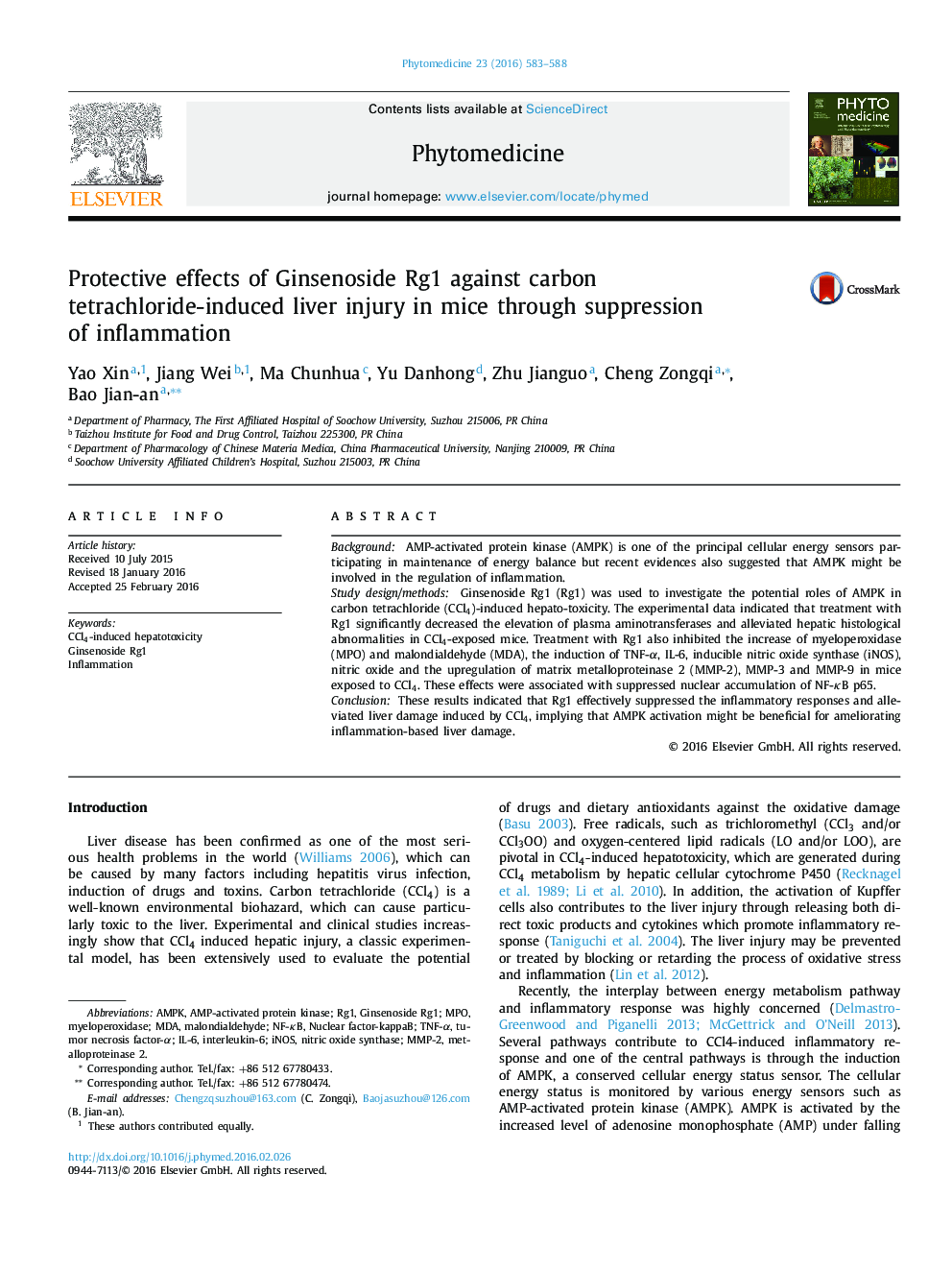| Article ID | Journal | Published Year | Pages | File Type |
|---|---|---|---|---|
| 2496229 | Phytomedicine | 2016 | 6 Pages |
BackgroundAMP-activated protein kinase (AMPK) is one of the principal cellular energy sensors participating in maintenance of energy balance but recent evidences also suggested that AMPK might be involved in the regulation of inflammation.Study design/methodsGinsenoside Rg1 (Rg1) was used to investigate the potential roles of AMPK in carbon tetrachloride (CCl4)-induced hepato-toxicity. The experimental data indicated that treatment with Rg1 significantly decreased the elevation of plasma aminotransferases and alleviated hepatic histological abnormalities in CCl4-exposed mice. Treatment with Rg1 also inhibited the increase of myeloperoxidase (MPO) and malondialdehyde (MDA), the induction of TNF-α, IL-6, inducible nitric oxide synthase (iNOS), nitric oxide and the upregulation of matrix metalloproteinase 2 (MMP-2), MMP-3 and MMP-9 in mice exposed to CCl4. These effects were associated with suppressed nuclear accumulation of NF-κB p65.ConclusionThese results indicated that Rg1 effectively suppressed the inflammatory responses and alleviated liver damage induced by CCl4, implying that AMPK activation might be beneficial for ameliorating inflammation-based liver damage.
Graphical abstractFigure optionsDownload full-size imageDownload high-quality image (80 K)Download as PowerPoint slide
